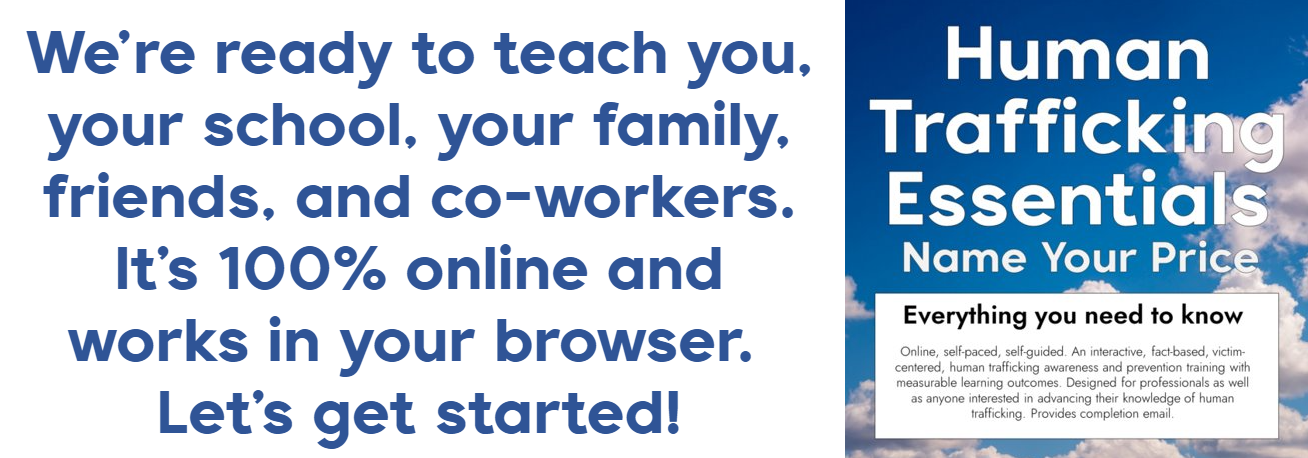Exposing the evils of human trafficking

“Sound of Freedom” is still going strong despite the efforts of the left to kill it.
In just three weeks the action-thriller, about a real-life American hero who went to Colombia to rescue one child from child sex traffickers and ended up rescuing 120 children, has racked up more than $100 million in ticket sales.
Millions of Americans — including my son Cameron and I — have now watched the true story of Tim Ballard, the founder of Operation Underground Railroad who has devoted his life to fighting and exposing the trafficking of kids for forced sex or forced labor.
“Sound of Freedom” is a powerful, powerful movie that had people leaving the theater in tears.
But as someone who was molested by a pedophile as a child, and as someone who's been speaking out about child sex trafficking since 1980, I didn't need a good movie to tell me about the horrors of human trafficking.
As I said to Cameron, “Most people were shocked by what they saw, but I felt it. I know what kind of evil goes on behind closed doors.”
“Sound of Freedom,” as I wrote last week, was actually made five years ago, but all the major studios and Netflix did not want to distribute it.
It took a heroic effort by Angel Studios, which specializes in religious projects, to raise the money to launch the independent movie in more than 2,000 theaters.
While Angel was profiting greatly and doing the country an important service, the hacks in the leftist media tried to kill “Sound of Freedom” and dodged the issue of child sex trafficking.
Instead, focusing on politics, they've called it “controversial,” “divisive,” “a Superhero Movie for Dads With Brainworms” and a piece of right-wing “propaganda” that feeds into QAnon conspiracy theories.
But the left's attempt to cancel “Sound of Freedom” has not only failed, it has made the movie even more popular with the public — and had a sort of reverse Bud Light effect on its ticket sales.
By dramatizing the tragedy of human trafficking in an emotional way, the movie is having an impact on millions of Americans who've never heard of the problem or have no idea of its scope.
It's hard to document with certainty because human trafficking is mostly illegal or underground, but according to the experts it is a global form of modern slavery that affects 27 million people, takes in $150 billion a year and makes $32 billion in profits.
Half of all trafficking victims are children under age 18 and about 80% are women and girls.
About a third of the women and girls are forced into the commercial sex business, and the rest are forced to work in legal and illegal industries like salons, restaurants, hotels, factories and farms.
Human trafficking is complicated. It occurs all over the world. It's concentrated in Southeast Asia and Africa, but the United States is one of the most active sex trafficking countries.
“Sound of Freedom” tells a very small story about a shameful form of modern slavery that the media hardly cover and government and business don't do enough to stop.
The movie itself doesn't have an overt or in-your-face political message, but everyone who sees it gets the message anyway. Especially parents of young children.
One of the most powerful moments for me was when actor Jim Caviezel, who played Tim Ballard, said that the child sex trade was more lucrative than illegal drugs.
You can take a bag of coke and sell it to a person once, the actor explains, but you can take a 5-year-old child and sell him or her five or 10 times a day.
The thought of one more child being sold into slavery and into the sex trade should sicken and enrage every American. As they say in the movie, “They're God's children. They're not for sale.”
Michael Reagan, the son of President Ronald Reagan, is an author, speaker and president of the Reagan Legacy Foundation.
This “Eyes on Trafficking” story is reprinted from its original online location.
Fair Use Notice: The PBJ Learning Knowledge Vault is dedicated to advancing understanding of various social justice issues, including human trafficking and related topics. Some of the material presented on this website may contain copyrighted material, the use of which has not always been specifically authorized by the copyright owner. We are making such material available in our efforts to promote education and awareness of these important issues. There is no other central database we are aware of, so we put this together for both historical and research purposes. Articles are categorized and tagged for ease of use. We believe that this constitutes a ‘fair use' of any such copyrighted material as provided for in section 107 of the US Copyright Law. In accordance with Title 17 U.S.C. Section 107, the material on this site is distributed without profit to those who have expressed a prior interest in receiving the included information for research and educational purposes. For more information on fair use, please visit: “17 U.S. Code § 107 – Limitations on exclusive rights” on Cornell Law School's Legal Information Institute.
 ABOUT PBJ LEARNING
ABOUT PBJ LEARNING
PBJ Learning is a leading provider of online human trafficking training, focusing on awareness and prevention education. Their interactive Human Trafficking Essentials online course is used worldwide to educate professionals and individuals how to recognize human trafficking and how to respond to potential victims. Learn on any web browser (even your mobile phone) at any time.
More stories like this can be found in your PBJ Learning Knowledge Vault.
EYES ON TRAFFICKING
This “Eyes on Trafficking” story is reprinted from its original online location.
ABOUT PBJ LEARNING
PBJ Learning is a leading provider of online human trafficking training, focusing on awareness and prevention education. Their interactive Human Trafficking Essentials online course is used worldwide to educate professionals and individuals how to recognize human trafficking and how to respond to potential victims. Learn on any web browser (even your mobile phone) at any time.
More stories like this can be found in your PBJ Learning Knowledge Vault.

